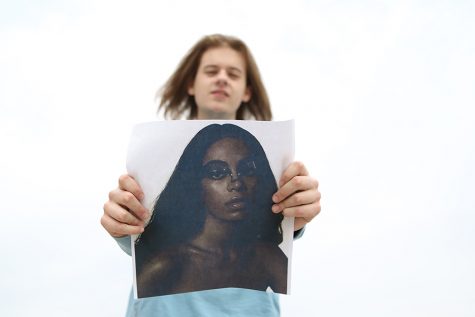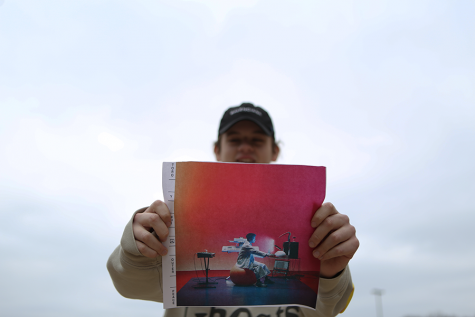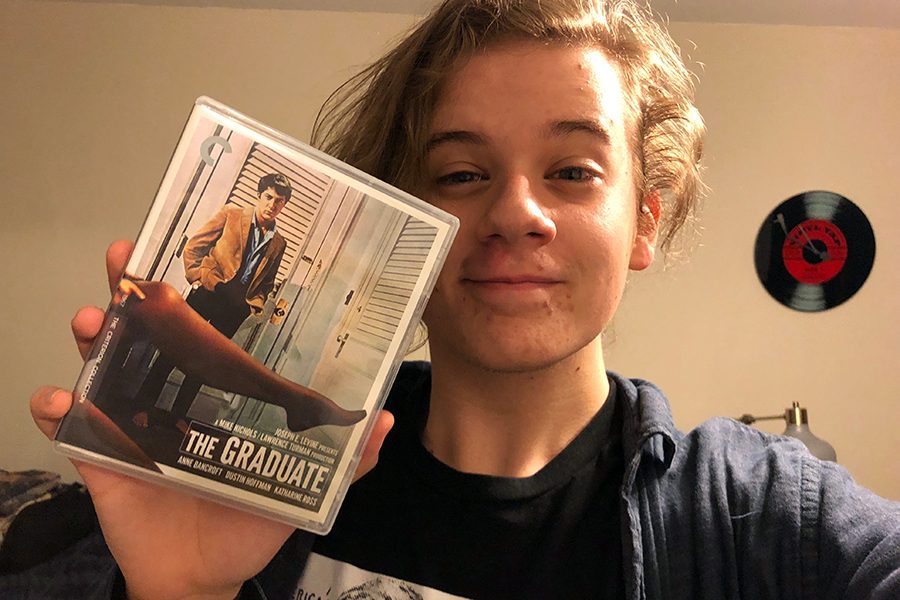Opinion | Bona Fide | “The Graduate”
A Review of Mike Nichols’ “The Graduate”
Mr. Braddock: “What’s the matter? The guests are all downstairs, Ben, waiting to see you.”
Benjamin: “Look, Dad, could you explain to them that I have to be alone for a while?”
Mr. Braddock: “These are all our good friends, Ben. Most of them have known you since, well, practically since you were born. What is it, Ben?”
Benjamin: “I’m just…”
Mr. Braddock: “Worried?”
Benjamin: “Well…”
Mr. Braddock: “About what?”
Benjamin: “I guess about my future.”
Mr. Braddock: “What about it?”
Benjamin: “I don’t know… I want it to be…”
Mr. Braddock: “To be what?”
Benjamin: “[looks at his father]… Different.”
“This is Benjamin. He’s a little worried about his future.”
“The Graduate” opens with Benjamin Braddock (Dustin Hoffman) as he returns home from college without a clue of what to do. Fearing the unknown, Braddock anxiously awaits the start of his adulthood.
The night of Ben’s return, his neighbor’s wife, Mrs. Robinson (Anne Bancroft) attempts to seduce him. Anxious and lacking a better option, Ben starts an affair that lasts months with Mrs. Robinson.
A box office smash and critical hit, “The Graduate” garnered over $100 million domestically on a $3 million budget and nominated for seven Academy Awards.
The film is a revolutionary achievement. A part of the “Hollywood New Wave” in the 1960s, “The Graduate” took audiences by storm in 1967. It was virtually unheard of to portray an affair of a young man and an older woman in the film industry, but director Mike Nichols does it with such grace.
Winning Best Director at the 1968 Academy Awards, Mike Nichols’ direction was the most innovative of its time. Whether it be awkward conversations or long/wide shots that speak more than words (and create contemplation of life itself), Mike Nichols changed the way films were made forever.
Nichols and both writers Calder Willingham and Buck Henry integrated art and modern-day wit into “The Graduate,” sparking a film that is both entertaining and a piece of art.
Room Clerk: “Are you here for an affair, sir?”
Benjamin: “What?”
Room Clerk: “The Singleman party, sir?”
Benjamin: “Ah, yes, the Singleman party.”
The cinematography by Robert Surtees is just as well a plot device as the script itself creating beautiful shots that gauge the essence of the film and what it truly stands for. While the film is revolutionary as a whole, the cinematography may be the cornerstone of “The Graduate.”
“The Graduate” conveys timelessly-relevant themes through the mind of a confused twenty-year-old with absolutely nothing planned for his future endeavors.
“The Graduate” is not only an achievement in cinema but has social relevance to students in high school and college. Just like many of the young adult population, Benjamin is distraught and fears the unknown of what is to come. Like all of us, he wishes for his life to be different but has no ability to see or therefore plan for the future, which in fact startles him.
It is also important to note the career-defining performances from Anne Bancroft, Dustin Hoffman and Katharine Ross.
Dustin Hoffman embodies the unexperienced and frightened young man, exemplifying one of the best performances of his career.
Anne Bancroft defies the subtlety of Hollywood (at the time) by showing a side of a housewife never put to screen before, executing the role perfectly with zero lack of respect for herself.
Katharine Ross captures the confusing emotions Elaine Robinson, daughter of Mrs. Robinson, faces throughout the film and illustrates the unknowns of being young without hesitation.
The soundtrack–wholly curated by Simon and Garfunkel (with certain instrumentals curated by Dave Grusin)– amplifies the story of “The Graduate.” It gave the duo enhanced credibility and their popularity grew with the soundtrack topping at number one on the U.S. charts.
“The Graduate” also brought audiences Simon and Garfunkel’s most world-renowned song, “The Sound of Silence.” Used a total of three times throughout, “The Sound of Silence” knew its fame before it was even put onto wax.
Timeless, forever socially relevant and a landmark in all categories of filmmaking, “The Graduate” executes style, substance and wit without missing a single beat.
The Graduate is currently available to stream on Netflix.
Your donation will support the student journalists of Eureka High School - MO. Your contribution will allow us to purchase equipment and cover our annual website hosting costs.

This is Margherita's fifth semester on staff where he serves as an opinions writer for the EHS_hub. Marghertia enjoys discovering new music, traveling...



















